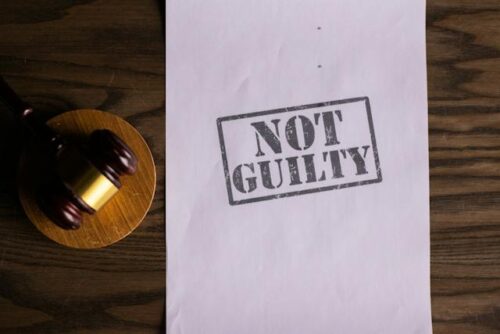
New Jersey, like most states, has thousands of pages outlining in detail its criminal code. New Jersey statutes cover all sorts of conceivable wrongful behavior. Despite the extensive number of those laws, every single law and every single crime enumerated has a single thing in common: if a defendant can be found guilty of it, the defendant can also be found innocent of it, depending on the circumstances. How would a Bergen County criminal defense lawyer help you in court? Our firm has used several winning criminal trial defense strategies, but this blog will address three frequently used ones.
Criminal Trial Defense Strategy #1: Question the (Lack of) Evidence
In criminal cases, the burden of proof is “beyond a reasonable doubt.” Some standards are less strict, like “preponderance of the evidence,” which is used in civil cases and only requires showing a more than 50% chance the party’s argument is correct. “Beyond a reasonable doubt,” however, requires the state to show that there is no other reasonable explanation besides that offered by the prosecutor.
Because of this, one of the most crucial things a defense lawyer can do is make sure the state holds to that burden of proof. Although prosecutors can try to portray a trial as a referendum on the defendant and their character as a person, the defendant doesn’t have to prove what happened. The defendant has a right to a presumption of innocence, and it is the prosecution that needs to show how the defendant is guilty beyond a reasonable doubt.
If the prosecutor can’t offer suspicious evidence, your defense lawyer should point that out to the court. Because if so, you must be acquitted. Your lawyer must poke holes in the prosecution’s theory but does not need to offer a secondary explanation. This strategy focuses on the insufficiency of the state’s evidence to convict you. The prosecution has the same burden of proof in every case, so this strategy is and should be very frequently used.
Strategy #2: Defend the Client’s Innocence
On the other hand, your lawyer may go further than saying the state hasn’t proved its theory, and argue that you are actually innocent. Sometimes the most persuasive argument available is as discussed above, showing that the prosecution hasn’t done enough to prove you guilty. But sometimes, making a forceful case for your innocence is the best path you can take.
While defendants don’t always take the stand to prove a lack of evidence, defendants do often testify to tell what happened from their perspective and argue for their innocence. Asserting your innocence functions as a defense in almost every circumstance.
Strategy #3: Highlight Unlawful Searches and Seizures
According to the Fourth Amendment, there are a number of limitations on how the police may conduct searches and seizures against you. Police officers, for instance, cannot stop your car to ask you questions and investigate unless they also have reasonable suspicion that you committed or were about to commit a crime. If they want to search you or arrest you, they’ll need probable cause. Probably cause means having reasonable, though not necessarily irrefutable, evidence that you committed a crime.
If your attorney is successful in arguing that the police did not have a reasonable suspicion or probable cause, the court might hold that police action against you was illegal. This is a very significant defense, because when an attorney shows the officer lacked the necessary suspicion or cause, all evidence emerging from the unlawful search may be excluded from trial.